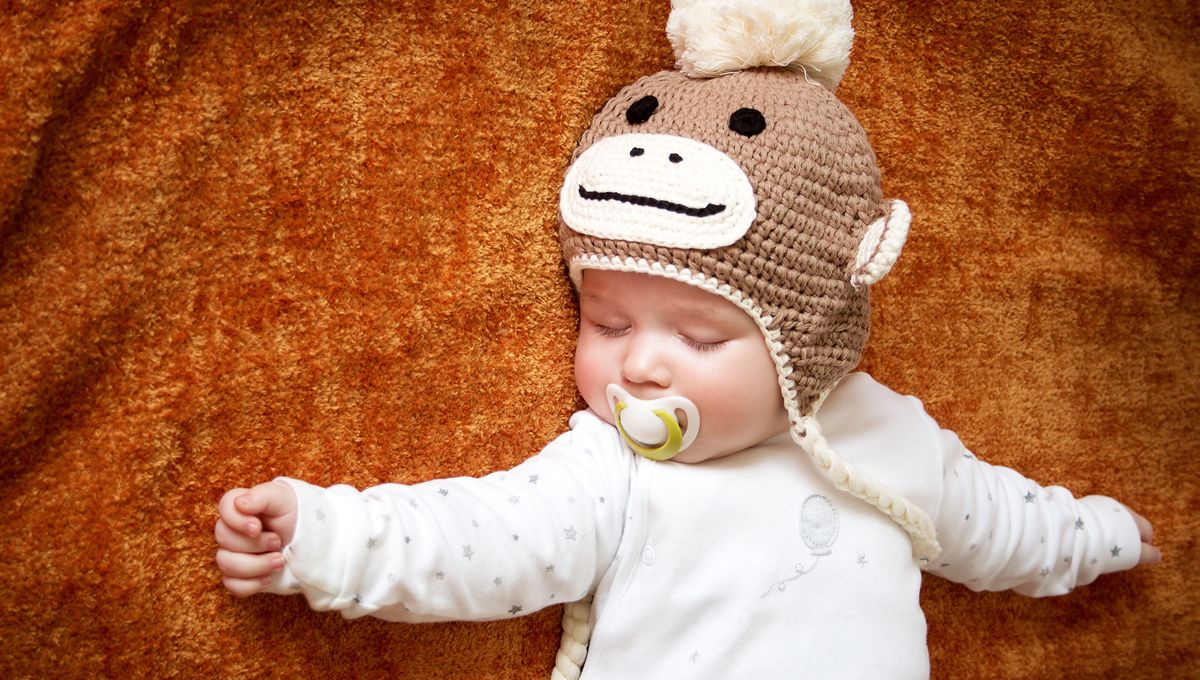
Watch any nature documentary, and something becomes quickly obvious: human babies are… kind of rubbish. Giraffes, for example, can stand up within an hour of being born – it takes humans the best part of a year to do the same – while your pet kitty is basically a teenager by the time it’s six months old (humans are, for comparison, approximately six months old at this point).
Even compared to other primates, we seem to be lacking. Baby chimps and gorillas are both born helpless, after all, but even they can cling on to their mothers and walk within around eight months. Baby humans can’t even hold their own heads up.
If examples aren’t your bag, consider the numbers: at birth, human babies’ brains are less than one-third of the size they’ll eventually end up at – maybe even as small as one-fifth the size. The next smallest baby brain in the primate kingdom is the chimpanzee, but even theirs are 35-40 percent the size of their parents’ – that’s up to twice as big as human babies’, comparatively.
What gives? For a long time, this comparative helplessness, or “altriciality”, in what is otherwise the Earth’s apexest of apex species was deemed to be the result of an evolutionary compromise: “as humans evolved larger brains and the birth canal became constrained due to biomechanical adaptations for bipedality, selection favored neonates with relatively smaller brains at the time of birth,” explains the new paper, “and a greater proportion of brain growth was offset to the postnatal period.”
And if it wasn’t the hips, perhaps it was a different trade-off: another potential explanation put the blame for our infant impotence on just how much energy it takes to build a new human. “Other authors suggest that… fetal energetic demands towards the final part of pregnancy are too high to maintain gestation much beyond 40 weeks,” the authors write.
And the crazy thing is, we’ve gotten away with it. In evolutionary terms, it seems, being born with a comparatively underdeveloped brain is actually an advantage – one big enough to outweigh the risks of both mother and baby being essentially out of action and nigh-defenseless for a matter of years. “Human altriciality… has been associated with a high level of brain plasticity resulting in increased learning capacities, behavioral flexibility and enhanced capacity for cultural transmission,” the researchers explain.
“A higher proportion of brain development happening postnatally allows for neural circuitry to be shaped directly by the environment where the adult individual will have to survive,” they write, “thus resulting in behaviors that are directly shaped by and adapted to those environments.”
In other words, doing so much of our brain development outside of the womb is what allows us to be as intelligent as we are – and, let’s face it: we’re not fast, or fierce, or particularly well-camouflaged, so our smarts are kind of all we’ve got. Thank goodness, then, that our babies are so damn helpless. Right?
Well, here’s the thing: according to the new paper, they’re not.
“Humans seem so much more helpless when they’re young compared to other primates,” agreed Aida Gomez-Robles, Associate Professor in the Department of Anthropology at University College London and lead author of the paper, in a statement released this week.
But it’s “not because their brains are comparatively underdeveloped,” she explained, “[it’s] because they still have much further to go.”
In fact, humans aren’t even the most altricial species out there. The team analyzed the brain development of 140 different placental mammal species – including modern primates, rodents, carnivores, and fossils of early humans and related ancestral hominins – comparing data such as length of fetal gestation, the relative size of newborn brains and bodies to their adult size, and the overall brain size of newborns and adults.
Perhaps unsurprisingly, given the sample size, “ranges of variation for brain proportion at birth are very wide,” the team found – with humans ranking distinctly… medium compared to other species. In fact, what set us apart in the animal world – and particularly within primates – wasn’t a smaller-than-expected brain size at birth compared to as an adult, but the fact that it couldn’t be accounted for by scaling for body growth.
“Humans are the only species that departs significantly from the scaling relationship observed in their order… in a way that is independent of the scaling relationship between neonatal and adult body size,” the researchers note.
So, why are human babies so stupid? Basically, they aren’t – they just have a lot of learning to do. They’re not even born “early” compared to other primates – that whole thing about how pregnancy would have to last 21 months if we were to be born at the same developmental stage as a chimpanzee newborn is just not true, the researchers discovered. We may be helpless at birth, but we’re not that special.
“Our results indicate that the apparent high level of human brain size altriciality most strongly relates to a larger than expected adult brain size, rather than a smaller than expected neonatal brain size or a shortened gestation length,” the authors write.
“Based on anatomy, behavior and transcriptional profiles… humans and great apes are in many ways similar from a developmental point of view during the first year of life,” they explain. “Differences between species become more marked during later stages of maturation.”
The study is published in the journal Nature Ecology and Evolution.
Source Link: Why Are Human Babies So Rubbish? They're Not, Posits New Study